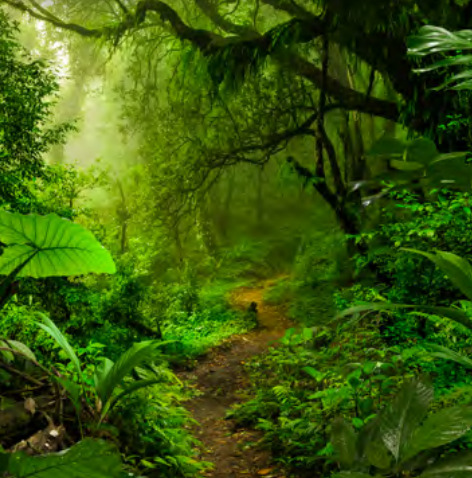Three Basins Summit: Another call for global south unity and climate financing

The Republic of Congo was the initiator of the alliance of the three basins, Amazon, Congo, and Borneo-Mekong-Southeast Asia in 2011. The Congo Basin represents the second largest tropical forest in the world in terms of area, after the Amazon Basin. This vast forest of 286 million hectares extends over six countries in Central Africa: The Republic of Congo, the Democratic Republic of Congo, Cameroon, the Central African Republic, Gabon, and Equatorial Guinea, representing 6% of the world’s forest area.
The Amazon Basin is the largest tropical forest on the planet, crossed by the world’s largest river in terms of volume and the second longest, the Amazon River. It extends over nine countries in South America, including Brazil, representing 60% of the Amazon rainforest, Peru, Ecuador, Colombia, Venezuela, Bolivia, French Guiana, Suriname, and the Republic of Guyana.
The Borneo-Mekong-Southeast Asia Basin, the world’s third largest carbon sink, is composed of two sub-regions, the island of Borneo and the Mekong River. The Mekong River is one of the largest rivers in the world, crossing six countries: China, Myanmar, Thailand, Laos, Cambodia, and Vietnam, which share the natural resources and land surrounding it. Borneo, the fourth largest island in the world, is divided between Brunei, Malaysia, and Indonesia.
The three global ecosystems account for 80% of the world’s tropical forests and two-thirds of the earth’s biodiversity. The three basins also play a critical role in regulating carbon emissions. This year’s Three Basins Climate Change Summit coordinated by the United Nations Decade for Ecosystem Restoration was aimed towards addressing challenges in Biodiversity Ecosystems, and Tropical Forests (S3B EBFT) and implementing the first global coalition to restore 350 million hectares of terrestrial and aquatic ecosystems.
President Ruto attended the three-day summit where he urged the global north countries to honour their efforts and commitment to accelerating efforts towards the reduction of carbon emissions. The President called out global north countries for failure and unwillingness to keep true to their commitments on the loss and damage fund, and the annual USD 100 billion in climate financing. He equated their inaction to the relegation of ecological considerations as wishful luxuries. President Ruto reiterated the call in the Nairobi Declaration and the Africa Climate Summit for the implementation of a financing mechanism to incentivize different stakeholders, to align their economic strategies with climate action.
Lauding the Paris Summit for a New Global Financing Pact, President Ruto noted that the need for a sustainable debt restructuring was not only necessary in alleviating developing countries from poverty but critical in addressing climate action.
The Congo Basin is described as the lung of Africa for being the world’s largest carbon sink. Kenya being part of the Congo Basin Climate Commission benefits from the Congo Basin as it influences rainfall in the country and the Kagera River, which originates from the Congo Basin, feeds into Lake Victoria which is a source of livelihood for many Kenyans.
The Three Basins Summit like the One Forest Summit held earlier in the year in Gabon was expected to come up with policies on conservation, cooperation, and financing for climate action. Policies against logging are critical in preventing deforestation and ensuring the attainment of global goals on tree coverage which Kenya aims to reach 30% by 2032 by planting 15.6 billion trees. While fresh commitments were made, President Ruto called for a unified voice in COP28 for global south countries in tackling climate action and the need for financial assistance from global north who are the world’s greatest carbon emitters. Indeed COP28 holds a high opportunity for African countries to put their foot down in matters of policies around climate action and climate funding from the global north.

